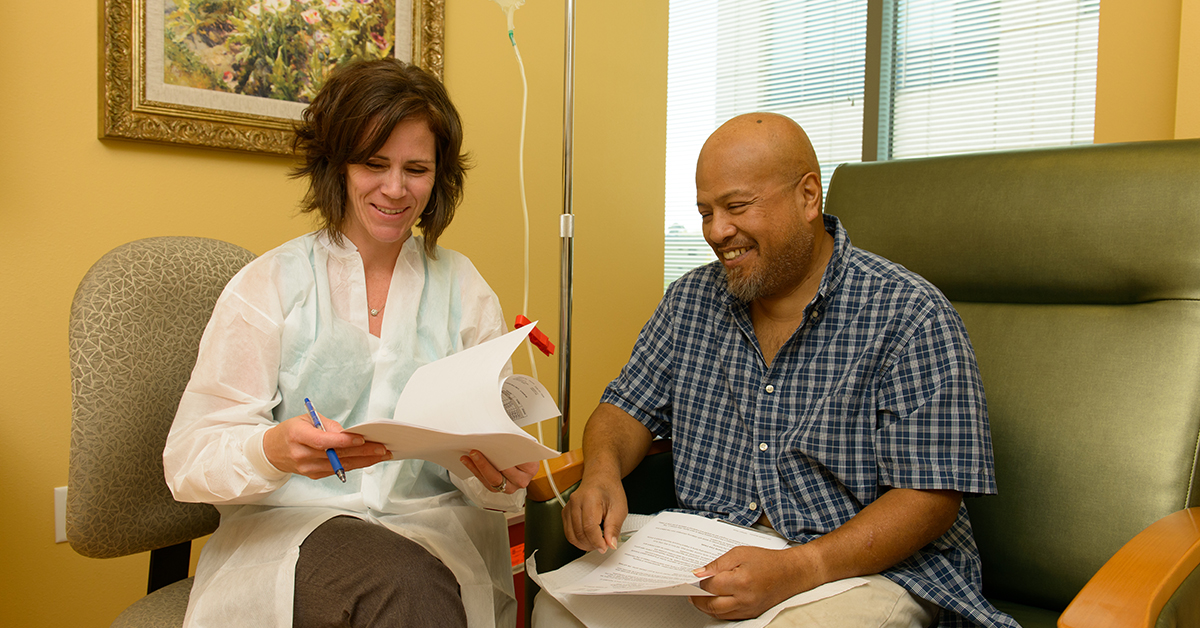
With more than 15 years of medical social work under my belt, I knew my role – provide information, resources and emotional support to help people who need regular kidney dialysis live the best life they could. I followed the research. I learned from the dedicated doctors and nurses I worked with. I knew what someone needed to do to lead a longer, healthier life on dialysis.
Which was why, I was so very frustrated when patients didn’t ‘listen’. My co-workers and I would vent, “Why won’t he just….?”; “If she only would…”; and “Why is he so stubborn?”.
All of these applied to Mr. Jones. He began dialysis treatments and quickly became ‘non-adherent’ to some very fundamental and important aspects of his care plan.
As a grown man, he did not want to ‘be told what to do’. This included staying on the dialysis machine for his full treatment hours and minutes and not skipping treatments. More dialysis means less toxins and extra fluid in the blood, which helps patients feel their best.
His care team explained and reminded, but time after time, a well-intentioned discussion turned into an intractable battle of wills. What was missing? What were we doing wrong?
In one of my discussions with Mr. Jones, he offered just the insight I needed. He pointed out that I had not really been listening. I was imposing my judgment; my dialysis goals on him.
More than my advice or expertise, Mr. Jones needed what psychologist Carl Rogers, a pioneer in the area of client-centered therapy, called unconditional positive regard.
Unconditional positive regard means accepting and supporting a person no matter what they do or say. This means using empathy to accept, learn about, and support the person without personal judgement. We may not condone their actions, but we always accept them as a person with the right to choose for themselves how they wish to live.
As it became clear what I had lacked in our previous interactions, Mr. Jones graciously accepted my apology which happily resulted in the gift of trust and greater openness. As our relationship strengthened, I was able to help him address dialysis challenges at his own pace and on his own timeline.
Reluctantly, he admitted to me one day that he had been feeling tired and a bit nauseous, classic signs of inadequate dialysis. He didn’t like the way he was feeling. He opened the ‘door’. And, I listened with an open heart and helped him decide, for himself, the best course of action – which included getting more of his full dialysis treatment.
Employing unconditional positive regard takes a positive attitude toward our patients. It requires nurturing the relationship as a primary focus. But, in the end, it allows us to deliver the best care in the most dignified manner to the people who we have dedicated our professional lives to serve.
Emily Watson is a Licensed Clinical Social Worker in California. After 10 years supporting ESKD patients in Satellite Healthcare locations, she has served the last five years as Senior Director of Social Work to lead the discipline for the mission-driven organization’s more than 115 medical social workers.